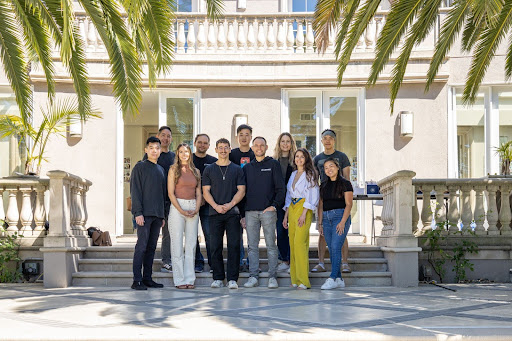Inworld AI has emerged as a leader in the AI-powered consumer application space, raising over $120 million since its founding in 2021. The company, now valued at $500 million, has developed the first AI runtime engineered to scale consumer applications. It lets developers go from prototype to production faster and supports user growth from 10 to 10M users with minimal code changes. By automating AI operations, Inworld Runtime frees up engineering resources for new product development and provides the tools to design and deploy no-code experiments. Their current partners — major media companies, AAA studios and AI-native startups — are already leveraging Runtime as the foundation of their AI stacks for their next generation of real-time, multi-million-user AI features and experiences.
M12, Microsoft’s venture fund, is a strategic investor in Inworld, recognizing the massive potential of AI-enhanced consumer experiences. This investment reflects M12’s continued commitment to supporting innovative companies that are reshaping the intersection of AI and developer tools, providing not just capital but also access to Microsoft’s ecosystem and enterprise reach.
In this edition of Founders Feature, we connected with Inworld’s Co-Founder and CEO Kylan Gibbs to learn more about how he’s revolutionizing consumer AI. Follow our Q&A below.
What industry problem are you trying to solve?

Kylan: We founded Inworld to bring AI benefits to everyone by enabling next-generation consumer AI applications that work at scale. Coming from Google and DeepMind, we saw that AI was flowing into business automation while consumer experiences lagged behind. Enterprises could operate more efficiently, but everyday users weren’t seeing transformative changes in interactive learning, personalized fitness, or engaging social tools. We started with AI agents for gaming and media because LLMs excel at dialogue and action planning in interactive environments, but our broader goal is to ensure AI creates net-new experiences for users rather than just optimizing costs for businesses.
What trends do you see in your industry that excite you?
Kylan: The most exciting trend is the shift from solving “building” to conquering “scaling” and “evolving” in AI applications. Building prototypes is becoming universally accessible—tools like co-pilots turn ideas into code in minutes. Now, the real challenge lies in scaling reliably to millions while evolving apps organically based on user signals.
We’re seeing an ecosystem emerge with flexible components for real-time performance and open weights enabling customization. Success will go to those who scale and evolve most effectively, returning focus to user experience.
How do you decide which investors to bring on board?
Kylan: We prioritize investors who align with our vision of democratizing AI and maximizing value to developers and consumers. They must share our belief in an open, distributed ecosystem where AI enhances daily lives for everyone. We love partnering with groups like Microsoft’s M12 because they provide access to unparalleled partnerships—like Azure integrations and enterprise reach—while embodying the same forward-thinking approach to innovation. M12’s support has helped us accelerate our Runtime’s availability through the Azure marketplace, perfectly aligning with our goal of empowering developers to build scalable consumer apps.
What advice would you give to someone who is just starting out in the startup world?
Kylan: Take consumer AI seriously. It’s easier than ever to build and scale, reminiscent of the mobile era’s explosion. With tools like our Inworld Runtime, you can go from prototype to production in days, automating AI operations to focus on user engagement. Don’t just copy existing chatbots, which only scratch the surface of what’s possible with consumer AI. Instead, focus on creating next-generation experiences that go deeper. Start with a clear user problem, leverage accessible ecosystems for customization, and prioritize rapid experimentation.
“AI is still early: innovate on personalized, interactive experiences that reach everyone, and you’ll tap into massive untapped potential.” – Kylan Gibbs

